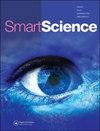基于精细KNN和集成KNN分类器协同训练的混合配电网多类暂态事件分类
IF 1.4
Q2 MULTIDISCIPLINARY SCIENCES
引用次数: 0
摘要
提出了一种基于机器学习的分布式发电系统暂态事件分类方法。现有的基于dg的混合网络由三个微电网(即热能、风能和太阳能)组成,作为测试网络,为孤岛和并网环境创造暂态条件。暂态案例研究包括配电线路的对称和不对称故障、故意孤岛、电力需求变化、电容器组的切换、非线性负载的增加、电动机起动条件等。该方法首先生成不同位置的三个不同相位的采样电压信号,并使用离散小波变换对每个信号进行分解。从计算的详细小波系数能量值中提取重要特征,用于后续阶段的精细k近邻(KNN)和集合KNN分类的协同训练。实验结果和分类器的性能指标表明,该方法能够有效地检测和分类所有的瞬态事件,准确率达到98%。这种用单一算法对多暂态事件进行分类,对现代电力系统的电能质量问题是真正有益的。本文章由计算机程序翻译,如有差异,请以英文原文为准。
Multiclass transient event classification in hybrid distribution network based on co-training of fine KNN and ensemble KNN classifier
A new machine learning-based method to classify the different transient events in distributed generation (DG) system has been proposed in this article. An existing hybrid DG-based network which consists of three microgrids (MGs), i.e. thermal, wind, and solar power, is used as test network to create transient conditions for both the islanding and grid-connected circumstances. The transient case studies include the symmetrical and unsymmetrical fault at distribution line, intentional islanding, variation of power demand, switching of capacitor bank, addition of nonlinear load, motor starting condition, etc. This recommended methodology starts with generating the sampled voltage signals of three different phases of different locations, and each signal has been decomposed using discrete wavelet transform. The significant features are extracted from the computed energy values of detailed wavelet coefficient for co-training of fine K-nearest neighbor (KNN) and ensemble KNN classification in the following stage. The results and the performance indices of the trained classifiers prove that the proposed method has been detected and classified all the transient events with 98% accuracy. Such type of multiple transient event classification in MG by a single algorithm is truly beneficial with respect to the power quality issues of modern power system.
求助全文
通过发布文献求助,成功后即可免费获取论文全文。
去求助
来源期刊

Smart Science
Engineering-Engineering (all)
CiteScore
4.70
自引率
4.30%
发文量
21
期刊介绍:
Smart Science (ISSN 2308-0477) is an international, peer-reviewed journal that publishes significant original scientific researches, and reviews and analyses of current research and science policy. We welcome submissions of high quality papers from all fields of science and from any source. Articles of an interdisciplinary nature are particularly welcomed. Smart Science aims to be among the top multidisciplinary journals covering a broad spectrum of smart topics in the fields of materials science, chemistry, physics, engineering, medicine, and biology. Smart Science is currently focusing on the topics of Smart Manufacturing (CPS, IoT and AI) for Industry 4.0, Smart Energy and Smart Chemistry and Materials. Other specific research areas covered by the journal include, but are not limited to: 1. Smart Science in the Future 2. Smart Manufacturing: -Cyber-Physical System (CPS) -Internet of Things (IoT) and Internet of Brain (IoB) -Artificial Intelligence -Smart Computing -Smart Design/Machine -Smart Sensing -Smart Information and Networks 3. Smart Energy and Thermal/Fluidic Science 4. Smart Chemistry and Materials
 求助内容:
求助内容: 应助结果提醒方式:
应助结果提醒方式:


